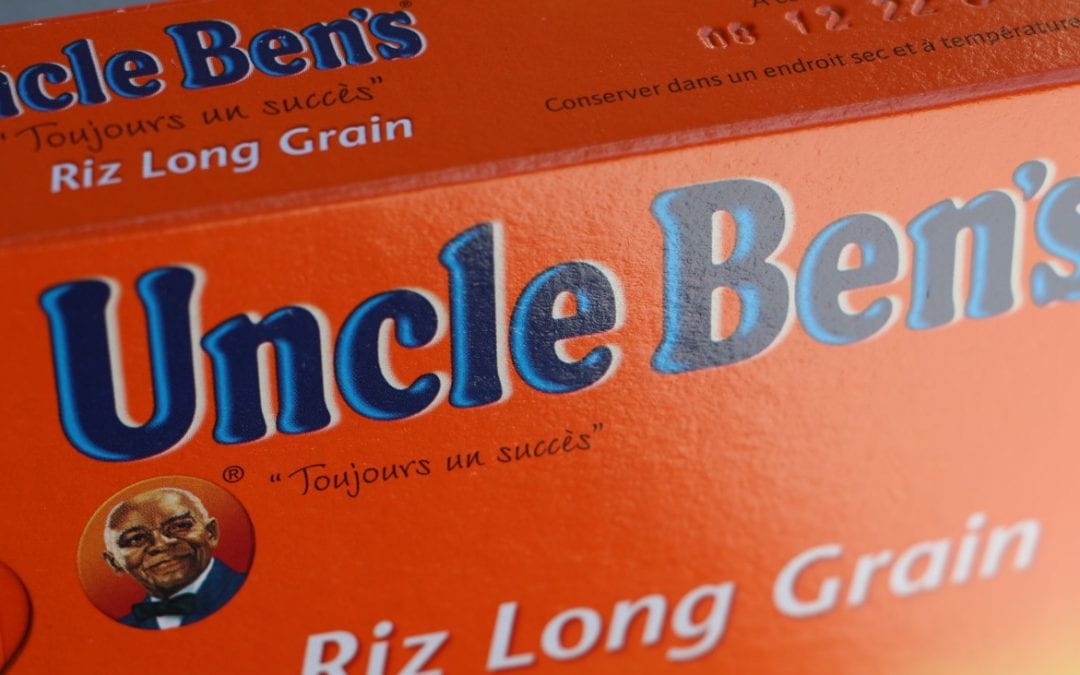This essay is adapted from one published in Helsingin Sanomat (in Finnish) 4.7.2020.
Black Lives Matter movement has pushed many consumer brands to re-think their values and relationship especially with ethnic and cultural stereotypes.
In recent weeks, radical brand reforms were first announced by Aunt Jemima (Quaker Foods) and Uncle Ben’s (Mars) whose well-known food brands and packaging inevitably reflect the racial history of the United States. L’Oréal’s and Unilever’s decisions to remove brand names and expressions of cosmetics products referring to “fair” or “whitening” skin, in turn, sparked widespread polemics and also angry feedback in social media.
Examples can be found all over the world – even in Finland. For example, the packaging of Brunberg’s famous chocolate treat called Suukko (or “The Kiss”) is today decorated with the idyllic silhouette of my ex-home town Porvoo, and no longer an African couple giving a kiss. Fazer – one of the leading brands in Finland – is currently re-thinking the naming of their candy products: Geisha chocolate is inspired by Japanese myths and aesthetics, but according to the consumer feedback, an exotic cultural stereotype may seem inappropriate in today’s world. Other recent examples include Eskimo ice cream that announced a change of name, and the leading dairy producer Valio that is considering the symbolism of its Turkish yoghurt – is the Fez (old Turkish national headdress) too much on the side of the packaging?
It is well justified that companies wake up to reflect on the meanings and ideologies that their brands actively produce. Brands inevitably use power by making cultural differences, categories, and ideals visible (or invisible) in their communications — intentionally or unintentionally. It seems many brands have also have taken a very cautious stance in this regard: trying to be too “diplomatic”, apologizing – and at times going overboard.
As package and advertising materials are being re-drawn and modified, however, a much larger question arises about whether companies are pressing the key issues. Does smoothing the image help correct major structural inequalities in companies themselves and in the society, or are brands only opportunistically seeking to minimize reputational risks? And what concrete changes are the companies making in order to promote equality and to reduce discrimination? Many large companies have generously donated millions of euros to support Black Lives Matter movement and related initiatives, but important concerns have been voiced about the companies’ own organizational culture and uneven treatment of employees.
The strongest brands around the world are those that actively take a stand about the society but also engage in concrete efforts to change it for the better. This creates genuinely meaningful links with customers. The strong brands also do not try to avoid or shield irony, laughter, or consumer-made memes – but instead embrace them as signals that their brands are part of active social negotiation and meaning-making. Otherwise, marketing also becomes generic, empty, and meaningless.
I think that the problem of stereotypes created by the brands is acutely relevant only when communication in some way offends, dismisses, or mocks different cultures, traditions or groups of people. Needless to say, it is important to carefully examine if this is the case. Yet, making cultural myths and influences visible is important to brands as well as anyone else seeking to foster a multicultural and tolerant society.
Joonas Rokka
Professor of Marketing
Director of Lifestyle Research Center
EMLYON Business School


Commentaires récents